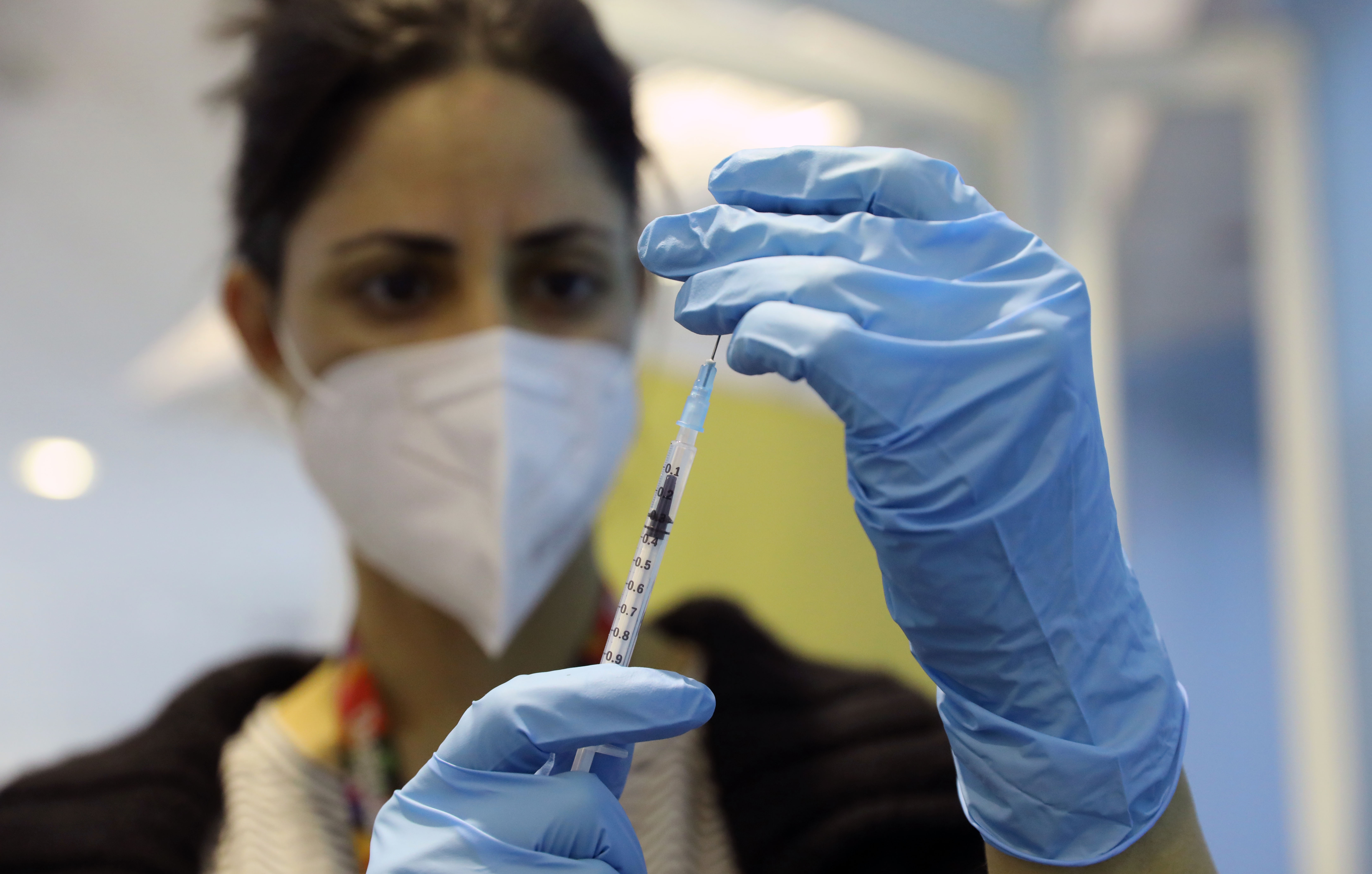The majority of possible side effects reported by people who received an Covid-19 vaccine in Cyprus concern those who received the Pfizer jab, a health ministry’s press conference revealed on Friday.
Out of 131 reports of side-effects that might be linked to the novel vaccines, 72 of came from people who received the Pfizer/BioNTech vaccine, said the acting director of the Pharmaceutical Services Helena Panayiotopoulou.
Another 56 reports concerned Vaxzevria (AstraZeneca) jab which has recently been under scrutiny after the ECDC reported possible links of the drug to the development of rare blood clots. Three more reports concern the Moderna vaccine.
The data presented mirrors the number of people who received the respective vaccines as Pfizer accounts for more than half of the vaccinations to date.
The health ministry administered 207,273 doses of the three coronavirus vaccines authorised so far, with 128,023 cornering Pfizer, 65,070 Vaxzevria and just 14,180 being Moderna.
Some 21 cases involving possible side-effects that were reported were serious, but not life-threatening, Panayiotopoulou told the conference, reminding people that none of the reported side-effects have been proven to be linked with the coronavirus vaccines.
“The debate over side effects has grown to such an extent that it could blow up the entire vaccination effort around the world,” the ministry official added in reference to AstraZeneca.
The possible side effects are recorded by all European member states and then submitted to the European Medicines Agency which will conclude whether the incidents recorded are related to the vaccination.
People who received the vaccine may report possible side effects through the national adverse reaction system to the pharmaceutical services by submitting the ‘yellow card’ online, via e-mail or fax. The form is available on the health ministry’s website.
Early on Friday, President Nicos Anastasiades called on the public to proceed with vaccination as this was the only means of protection against Covid-19.
He asked everyone to consider their lives and not the possible rare side effects.
Meanwhile, following certain technical problems, the Head of the Medical Services Olga Kalakouta announced the reopening of the vaccination portal for people aged 64-67 this Sunday. People aged 51-52 will be able to access the portal on Monday, while those belonging in the 49-50 age group will have access to vaccination appointments on April 21.
People aged 47-48 will access the vaccination portal on April 23.
Priority will continue to be given accordingly for the younger cohorts with the aim to vaccinate those 40 and over by Easter and proceed to those aged 30-39, Kalakouta added.
Amidst reluctance to book an appointment for the Vaxzevria jab, the ministry reduced expected deliveries of the specific vaccine and increased the number of Pfizer deliveries.
Cyprus expects a delivery of 500,340 Pfizer doses by the end of June and an additional 75,050 doses of Vaxzevria by the first week of May. Another 6,000 to 8,400 Moderna doses are also expected end of April in addition to 2,400 Janssen doses, the jab of Johnson&Johnson pharmaceutical company.
Further information is expected by the European Medicines Agency regarding both AstraZeneca and Johnson&Johnson whose vaccines were said to possibly cause blood clots.
The rollout of Janssen jab has been postponed pending further investigation.







Click here to change your cookie preferences